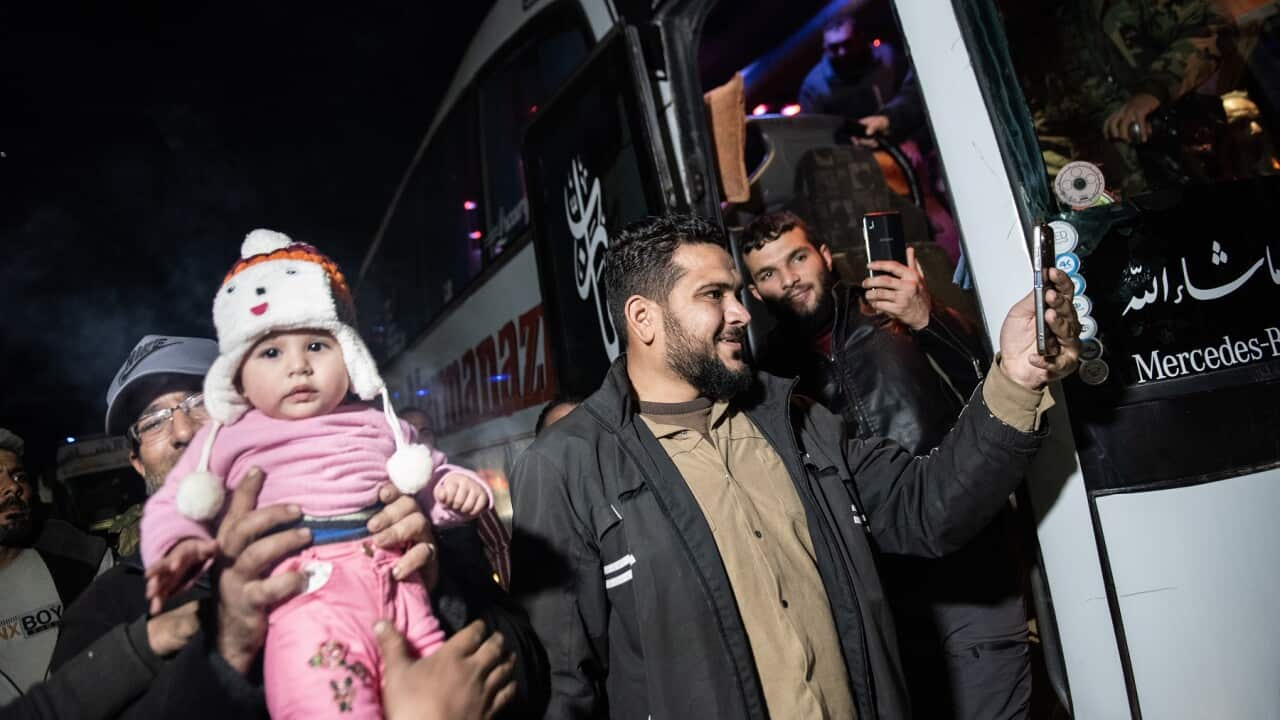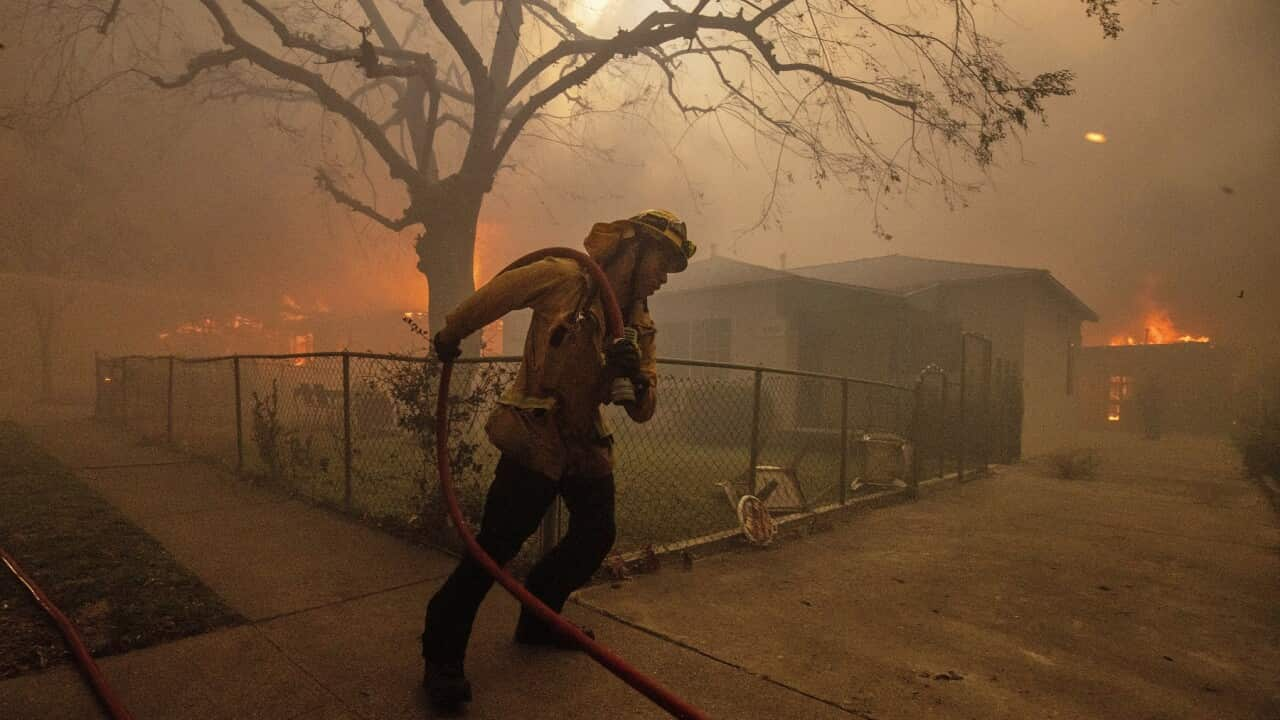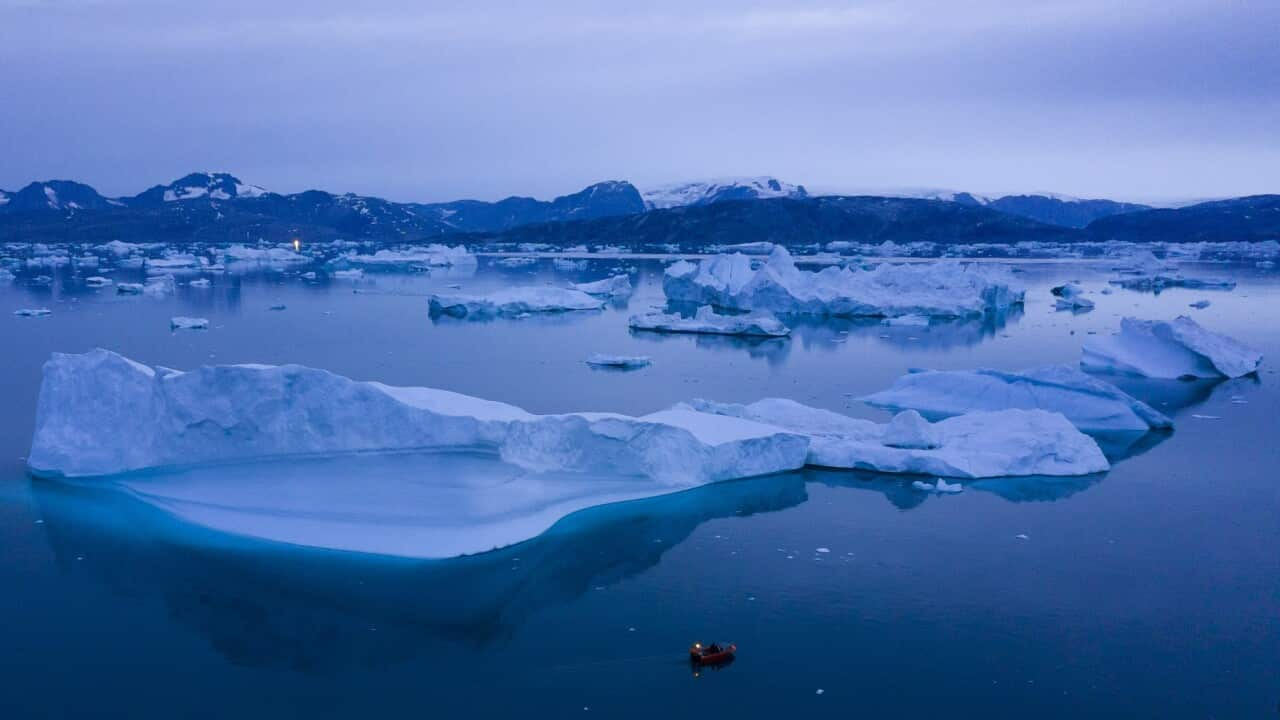TRANSCRIPT
"I am going, I am going earlier than my established time. I understand I have to do it."
The year is 1999 and then-Russian president Boris Yeltsin announces his early resignation.
In his place, he appoints a mostly unknown figure, who had been named prime minister in the country four months earlier.
"He will be able to unite those who will renew great Russia in the 21st century. He is security council secretary and director of the Federal Security Service Vladimir Vladimirovich Putin."
Vladimir Putin has kept control of Russian leadership since then, becoming a key figure in one of the most turbulent periods of the nation's history.
His choices, his decisions and the changes he has brought to the country have been described as questionable and controversial.
Associate Professor Matthew Sussex, at the Strategic and Defence Centre of the Australian National University, describes Putin as a totalitarian leader.
"I think that his KGB and FSB (Russian Federal Security Service) past is a really good indicator of what he sees as the main ways to maintain power. And it's been widely reported that his favourite word is 'control'. That he sees his ability to lead Russia very much through the prism of the ability to bend others to his will, to make them fight one another instead of him, and to make sure that the Russian people have very little avenue to vent their frustrations."
What's become known as the Medvedev–Putin tandemocracy was the joint leadership of Russia between 2008 and 2012.
Vladimir Putin was constitutionally barred from serving a third consecutive term as president of Russia, so he assumed the role of prime minister under President Dmitry Medvedev.
But signs of his real intentions became clear in 2011, when he announced he would be running for a third-term presidency.
He made the announcement after changes to the constitution that sparked massive protests across Russia.
People claimed the election results were being manipulated in favour of Putin's United Russia party.
In 2012, he retained the role of president, only this time for a six-year term.
In an emotional speech, he claimed his party won a "fair and honest" process.
"We have won in honest and fair combat. But this was not only the election for Russia's president. It was a very important test for all of us, for all our people. We have shown that nobody can tell us what to do, no one and nothing. We have responded to our people's desire for change. We were able to save ourselves from political provocations that have one goal: to destroy Russia's statehood and to usurp power."
All attempts to question Putin's actions or authority in Russia have been quickly silenced, along with the instigators.
In 2015, Opposition leader Boris Nemtsov was shot and killed on a bridge near the Kremlin.
In 2021, Opposition leader and anti-corruption activist Alexei Navalny was sentenced to prison for violating parole conditions and died while being held at an Arctic Colony.
In 2023, Russian mercenary leader Yevgeny Prighozin was killed in a plane crash, two months after leading a rebellion against the Russian President.
Vladimir Putin sent a strict message to any considering taking up arms against his government.
"As President of Russia, Supreme Commander-in-Chief, as a citizen of Russia, I will do everything to protect the country, to protect the constitutional order, the lives, the freedom, and security of our citizens. Those who organised and prepared the military rebellion, who raised arms against their comrades, have betrayed Russia and will be held accountable for this. And I urge those who are being dragged into this crime not to make a fatal and tragic unique mistake, to make the only right choice. To stop participating in criminal acts."
During his time in leadership, he has also attempted to expand the Russian territories and reaffirm Russia's position as a global power.
Russia controversially claimed certain regions of Georgia as its own in 2008, following a short conflict.
In 2014, tensions between Ukraine and Russia came to a head after the Russian Federation annexed Crimea following a quick referendum.
In early 2022, the war escalated when Russia announced a full-scale invasion of Ukraine, describing it as a "special military operation".
Emeritus Professor of Strategic Studies at the Australian National University, Paul Dibb, says those moves shifted Russian public opinion over their leader.
"As late as 2014, when he (Putin) authorised the invasion of Crimea by little green men and women in disguised uniforms, they were out in their crowds in 2014, chanting in Red Square 'Crim Nash', 'Crimea is ours'."
Vladimir Putin's government has also been accused of interfering in the affairs of other nations.
Russian military operations in Syria helped maintain president Bashir al-Assad in power back in 2015, with the Russian government offering him refuge when he was ousted by rebels a few weeks ago.
And in the United States presidential election of 2016, it was widely reported that Vladimir Putin aided Donald Trump's victory over Hillary Clinton.
The 72-year-old has long been critical of the US-dominated NATO alliance, and Professor Sussex says this criticism stems from Putin's real intentions.
"I think he (Putin) is an old-fashioned Russian imperialist. And that's manifested in things that he's said himself. A lot of his criticism of the West as a pretext for invading Ukraine was that NATO expansion made him do it, but realistically this was a war of choice. This was a war for which Putin has subsequently said 'throughout history Russian leaders have had to expand, to take territory, and now it's just the time for us to take back our own lands'. And if that's not neo-Imperialism, I don't think I know what is."
It can also be said that under Vladimir Putin's leadership Russia has grown into a considerable force on the global scene.
Although heavy sanctions have been imposed on the nation and key individuals by the West since the invasion of Ukraine, Russia maintains it financial independence, even defying the expectations of economists.
Emeritus Professor Dibb says those sanctions have proved, so far, large ineffective.
"I think a lot of people felt that once NATO, led by the United States, and the EU (European Union) imposed really harsh sanctions on Russia - which they are, seriously harsh sanctions the likes of which we have never seen before - what effect has it had on his (Putin's) leadership? Well, none that we can detect."
The image of the former KGB agent has become so attached to the Russian leadership role, it is difficult to imagine what the nation's future might be without him.
Professor Sussex says any future leader of Russia is likely to arise from within the ruling conservative party.
"I think really that the successor to Putin will probably be pretty much the same, if not worse. Because the Russian elite has now had a generation where they know nothing but Vladimir Putin and his style of leadership."













